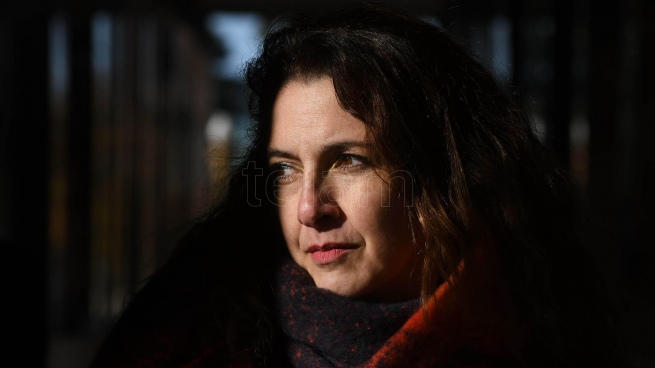Paula Logares, the first granddaughter to recover her identity through genetic studies when there were still three years to go before the official creation of the National Genetic Data Bank who turns 35 on Wednesday, June 1, highlighted the importance of having had “science as an ally” in the complex task to which the democracy of restore their identity to babies stolen by the last dictatorship.
“Within the terrible and absolutely unfortunate situation that I and a lot of people my age had to live through, it was very good that the National Genetic Data Bank existed, which is actually a response to the socially undisputed request of Mothers and Grandmothers“, told Télam Logares, the 23rd granddaughter.
“It was in the face of that desperate and extremely fair request, made with all the pain and enormous love (for her disappeared children), that this tool was found” that would allow the identity of more than 70 grandchildren to be recovered.
In that sense, he said that “it is great to have been able to count on science as an ally, as support (for restitutions), for the value that science has in our society, which exceeds the political” and to the different generations.
Paula Eva Logares was born on June 10, 1976 and was kidnapped in Montevideo along with her parents Mónica Grinspon and Claudio Logares May 18, 1978, when little I was almost two years old.
While Paula’s parents were transferred to Pozo de Banfield and remain missingPaula was detained by the deputy commissioner of the Buenos Aires Police Rubén Lavallén, who he had listed it as his own and as born in a home birthbut in 1978, that is, as if he were two years younger.
Her grandmother who had never stopped looking for her, recognized her years later at the exit of a school in Chacarita and on the first business day of democracy, December 13, 1983, filed a judicial complaint.
Logares said that in his case, “when they needed to corroborate my family ties, the molecular DNA analysis had not been discovered” and the relationship with her grandmother Elsa Pavon could be established from “grandfather index” formulated that year by a group of geneticists from the visit of the grandmothers to their laboratories spread all over the world.
“Then when the DNA thing came up, I was already living with my grandmother, but as to confirm it they do it to me again. I was already tired of being taken out every so often, but it was just to confirm. I remember that I I was 8 years old and I thought ‘let them confirm it with another person, why always with me’, because for me it was already super tested, “he said.
Logares says that “as a child, I had no notion of what could be verified” the kinship with the blood, “they did not give me much information, but I did know that it was something serious or important because of the situation” around her during the extractions, until everything comes together the judge “introduces me to my grandmother, she tells me that the people I was living with were not parents, that I was robbed during a dictatorship”.
“From then on I went to the house in Banfield where I had lived and known as a child. I think that if I accepted it, it was because it had to do with a non-conscious memory (…) I never refused, nor did I want to escape, which was one of the fears they might have. There was never that kind of crisis or anything. If I was able to accept it, it’s because it had an echo with what I had lived through,” she said in an interview for the book “A Question, Thirty Years”of the BNDG.
1984. Recently restored, the granddaughter Paula Eva Logares with her grandmother. For the first time, Justice used DNA as evidence #40YearsOfStruggle pic.twitter.com/V276LF6xoX
– Grandmothers Plaza Mayo (@abuelasdifusion) July 4, 2017
Logares also thinks it is “super valuable and important” that the BNDG outlives the grandchildren, so that identity can be restored by their descendants in case of doubtbecause “if one generation does not agree, it is very good for the next generation to do so” given that the crime of identity suppression continues to be committed in the great-grandchildren.










